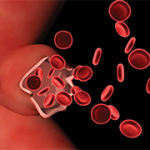Patients should be informed of the symptoms of an aortic aneurysm and dissection, including sudden, severe and constant pain in the stomach and chest or back. Symptoms usually don’t arise until after an aneurysm bursts, which is a medical emergency. If these symptoms occur, patients should seek immediate medical attention by going to an emergency department or calling 9-1-1.
Michele B. Kaufman, PharmD, BCGP, is a freelance medical writer based in New York City and a pharmacist at New York Presbyterian Lower Manhattan Hospital.
ad goes here:advert-1
ADVERTISEMENT
SCROLL TO CONTINUE
References
- Heron Therapeutics Inc. News release: FDA grants priority review designation for Heron Therapeutics’ NDA for HTX-011, a non-opioid for postoperative pain management. 2018 Dec 31.
- U.S. Food and Drug Administration. Drug safety and availability: FDA warns about increased risk of ruptures or tears in the aorta blood vessel with fluoroquinolone antibiotics in certain patients. 2018 Dec 20.



